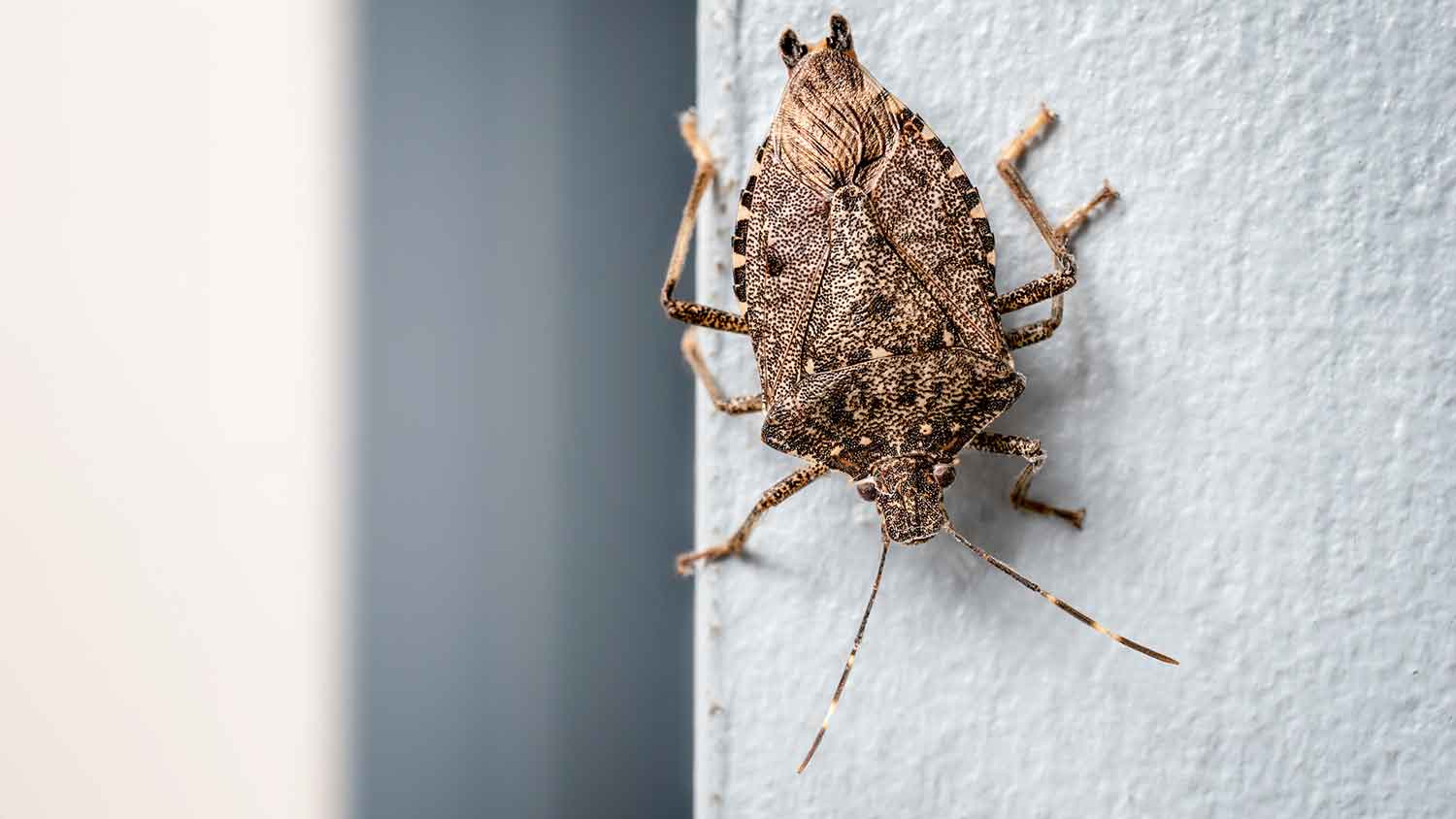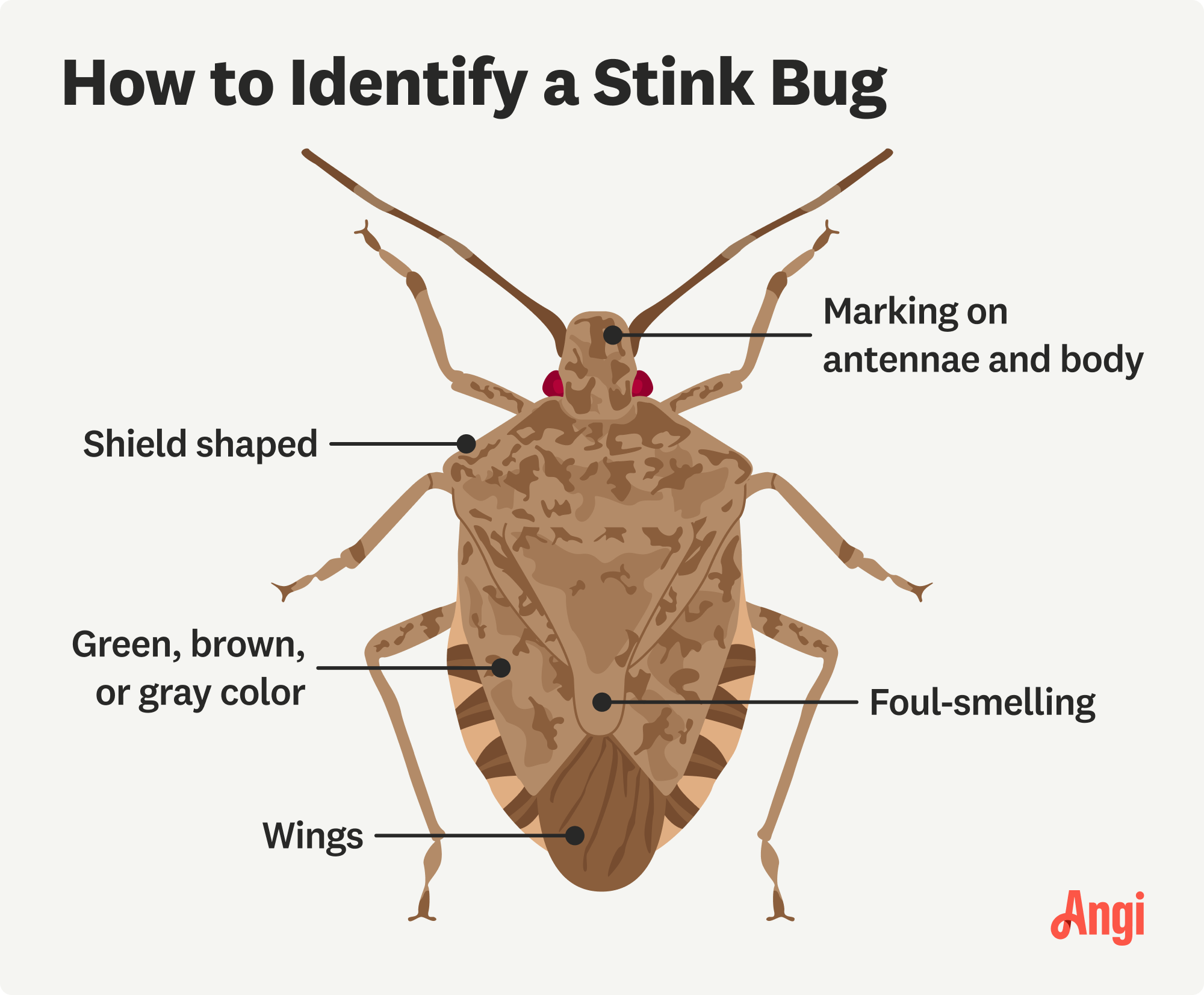
Whether you have bugs, bats, or rodents invading your home, you’ll want to contact an exterminator quickly. Find out how much pest control costs in Columbus, OH.
Smell you later, stink bugs


You’ll smell the notorious stink bug coming, especially if you swat or step on one. Between nymph and adult stages, stink bugs live about 7 to 9 months. Their lifespan depends on factors like climate and how many generations it creates.
In the meantime, stink bugs attract more of these often-invasive bugs into your home, where they can eat your food and ruin growing produce. Here’s how the stink bug lifespan progresses and when to hire a pest control pro to get rid of an infestation.

When people describe stink bug problems, they’re usually talking about the Brown Marmorated Stink Bug, a particularly annoying species that’s invasive to the United States. These stink bugs live about 7 to 9 months from nymph to adult. You are most likely to notice them during the spring and summer when they’re most active.
The life of a stink bug is divided into two different parts. After it hatches, it goes through a nymph stage, where it grows and molts several times. Stink bugs have five nymph stages, totaling around 5 weeks. Once stink bugs enter adulthood, they typically live between 6 to 8 months, during which time they breed and lay more eggs.
With some overlap, stink bugs can have up to four generations each year, making them difficult to eradicate once they are entrenched. However, just because they go dormant for winter doesn’t mean that they have all died out, especially if a new generation was recently born.

Stink bug lives can vary depending on environmental factors. These factors also influence how often stink bugs will reproduce and stick around:
Temperatures: Stink bugs prefer warm weather. They’re unlikely to live as long in colder climates, where they’ll also hibernate for longer and have fewer breeding cycles. If they’re trapped outside when temperatures fall, they’re likely to die early.
Humidity levels: Just as the bugs like it warmer, they also like higher humidity. In dry climates, they’re less likely to live as long or mate as often.
Food sources: A tightly sealed kitchen and pantry will keep the bugs’ lives shorter and reduce their egg-laying potential. In the warmer months, they often live off nearby fruit and edible vegetation, so removing these sources of food can discourage them.
Stink bug season: Stink bugs are most active in late spring and summer. The longer your warm season, the more active and noticeable they will be, and the more chances they’ll have for breeding cycles.
Pest control: Pesticide barriers and traps will end the lives of many stink bugs before they become an issue. We don’t suggest spraying pesticides inside your home, which can be toxic and have limited efficacy, but professional pest control near you can offer more long-term solutions.
A few important steps can control stink bug problems if these pests are a problem in your area.
Seal cracks, gaps, doors and windows: Stink bugs only try to enter homes during the fall, which is when they release chemical signatures to attract others and prepare to hibernate. You can stop this process by preventing them from getting inside. Make sure your home is insulated and seal all cracks or gaps throughout your house. Keep doors and windows shut.
Vacuum any stink bugs: Vacuuming away stink bugs can stop an infestation before they start to lay eggs. Plus, vacuuming them away won’t crush them and release those smells that can attract other stink bugs to your home.
Keep plants low and away from the house: Stink bugs are attracted to houses where grass, bushes, and shrubs grow close to the exterior walls. Keep outdoor vegetation well-trimmed and well away from your home to prevent pests like these.
Turn lights off at night: Stink bugs are attracted to light, especially in the fall when they’re looking for homes to hibernate in. Keep your lights off during the evening or night to discourage them.
From average costs to expert advice, get all the answers you need to get your job done.

Whether you have bugs, bats, or rodents invading your home, you’ll want to contact an exterminator quickly. Find out how much pest control costs in Columbus, OH.

It’s important to know bed bug treatment costs if you have an infestation. Our guide covers different treatment methods and cost factors to eliminate these pests.

How much does a gnat exterminator cost? The answer depends on the method of treatment and the level of infestation. Find out what plays into your budget.

There's no one simple trick for getting rid of fleas in your house. But when you come at them from all angles, it's easy to send fleas packing for good.

Honey bees are crucial to the ecosystem, but it’s normal not to want them near your space. Learn how to get rid of honey bees without harming them.

Even if you don't fear spiders, catching these arachnids in your home is no fun. Learn how to get rid of spiders and keep them out.